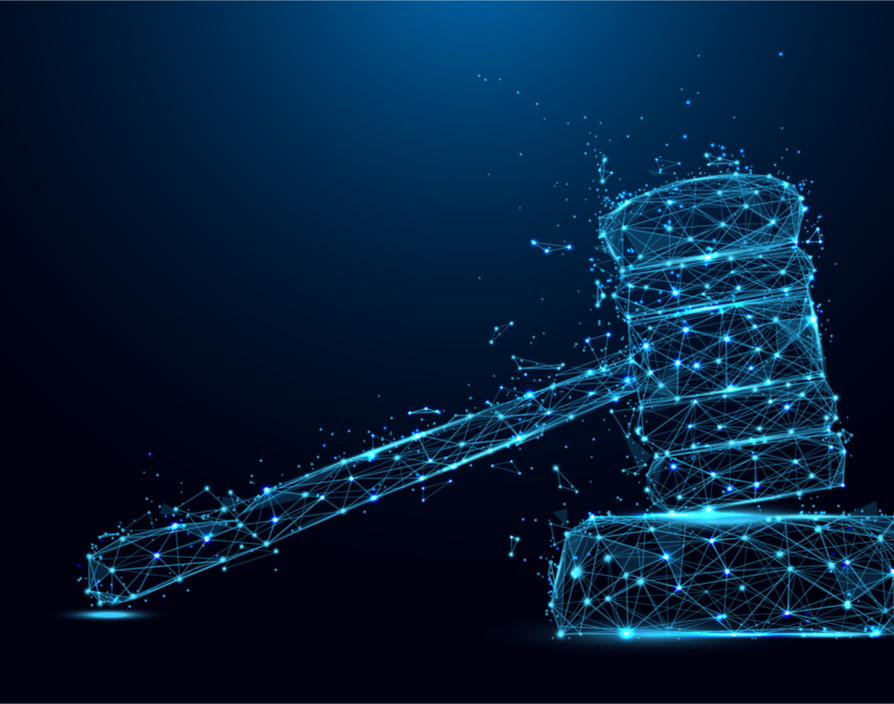Recent developments in artificial intelligence (AI), automation and machine learning have made it clear we’re at the cusp of a new robotic era. However, the huge technological leaps over the past 20 years is now often accused of threatening people’s jobs. While truck drivers and taxi firms are often reported as being pushed aside by startups like Uber, the question is if solicitors are also facing a similar threat.
For the past few years, technology has begun to nibble away at certain legal tasks that was traditionally done by humans. “Technology is literally changing the way firms practice law,” said Kerry Westland, head of innovation and legal technology at Addleshaw Goddard, the law firm. “Its driving new behaviours, adding increased pressure to stay competitive and encouraging clients to rightly demand more time and cost-efficient ways of working.”
It started with solicitors using tech to rid themselves of the more time-consuming admin tasks. Given the Sisyphean task of going through tens of thousands of documents, it’s hardly a secret why many cheered when AI promised to alleviate law professionals of their paperwork.
That is exactly what the UK-based startup, Eigen Technologies tries to do. And there’s reason to be confident that they can succeed. In the beginning of June, Goldman Sachs and Temasek injected £13m into the company in a huge a series A funding round.
But Eigen Technologies is hardly the only legal tech startup in the UK. For instance, Luminance and Rradar recently disrupted the legal sector and both were finalists to receive the award for the Best AI Product in Legal at the CogX Festival, which celebrates companies innovating in AI tech. And then there’s Do Not Pay that’s using AI to make it easier to apply for asylum in the the UK, the US and Canada.
But if these startups are streamlining the process to require less human work, doesn’t that mean a smaller need for staff? Aren’t lawyers afraid of losing their jobs? The answer is no, at least if you ask David Anderson, head of corporate services at St John’s Buildings Barrister’s Chambers. “Reading a document is very different to interpreting how best to use it in litigation and no AI product can determine the emotions of any particular party when deciding whether to accept an offer or to continue to fight a case,” he said.
Anderson added that solicitors cannot afford to ignore tech. “We cannot sit in a bubble assuming AI will not impact on how we work or the service we deliver,” he said. “Instead, we should embrace it and use it in our businesses to deliver better outcomes.”
And he’s hardly alone in being optimistic about the new technology. For instance, Clerksroom, a UK based law firm, has been testing an AI-based junior clerk named Billy Bot. Essentially, Billy Bot is a specialised chatbot that connects people with available barristers. “The traditional chamber management process is needlessly cumbersome,” said Stephen Ward, managing director of Clerksroom. “A clerk has to take the enquiry details, query the diary, carry out a conflict check, create the booking and send confirmation.” Given the firm handles roughly 1,500 new bookings each month which means roughly 250,000 clicks and keystrokes each month, it’s easy to see how Billy Bot can speed up things.
But while there’s certainly advantages to using these services, there are dangers with being too dependent on tech especially for new junior lawyers who’ve traditionally cut their teeth going through slews of legal documents. [If] we now use AI and paralegals to do that – how will they learn about the construction of the contracts?” wondered Westland. “If they are using automation tools to produce documents by answering questionnaires – will they understand why they are answering questions in a particular way and how clauses can be interdependent on each other and lead to litigation if not considered carefully enough? If they become people who process transactions or matters using technology that has the law built into them – how do they become the experts that everyone agrees is still needed? The legal world is changing and therefore what is expected of tomorrow’s lawyers will also.”
So even though legal tech may speed up solicitors’ work, it’s anyone’s guess whether AI is a boon or a bane for lawyers. ![]()
Share via:


















































